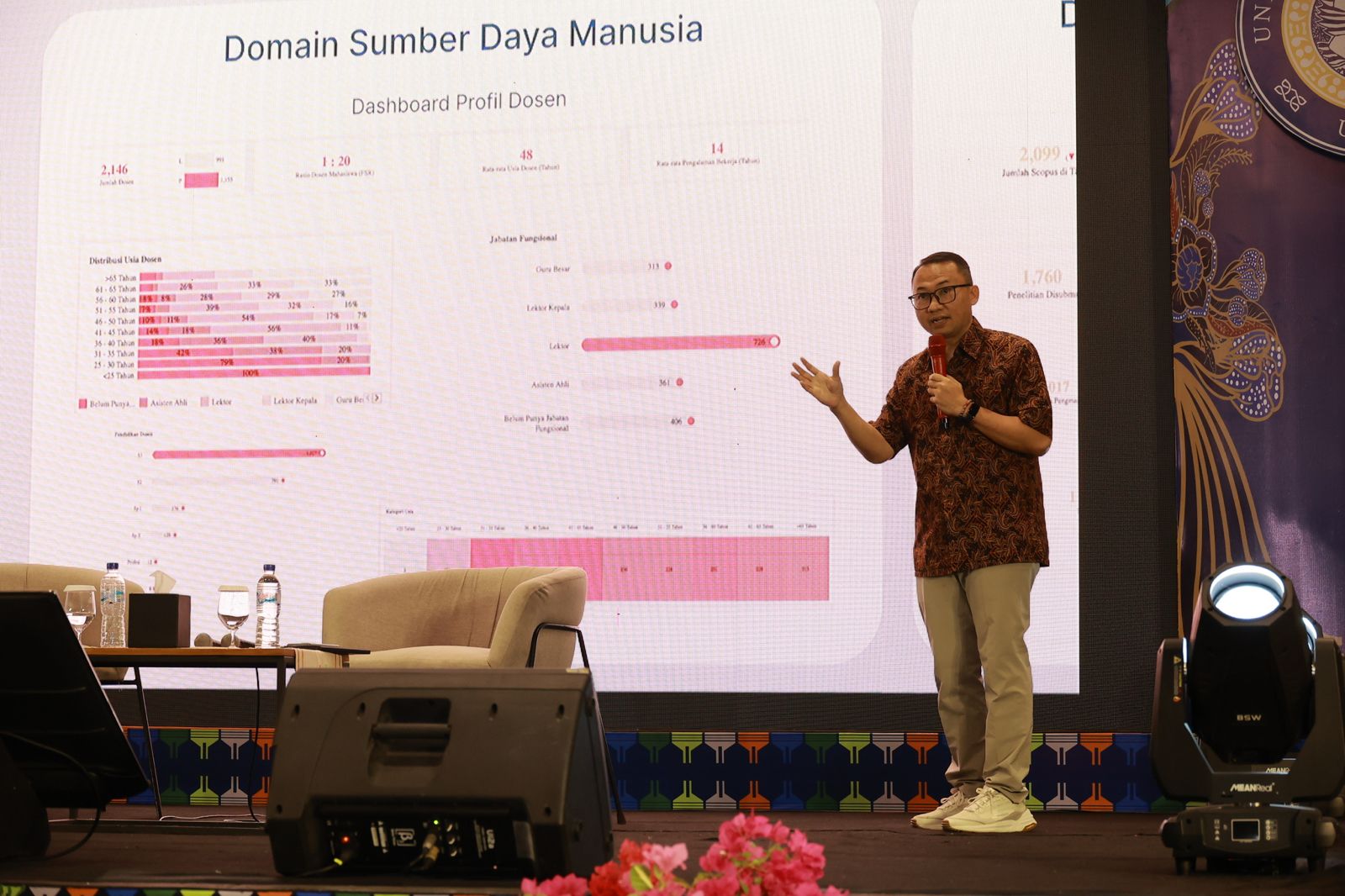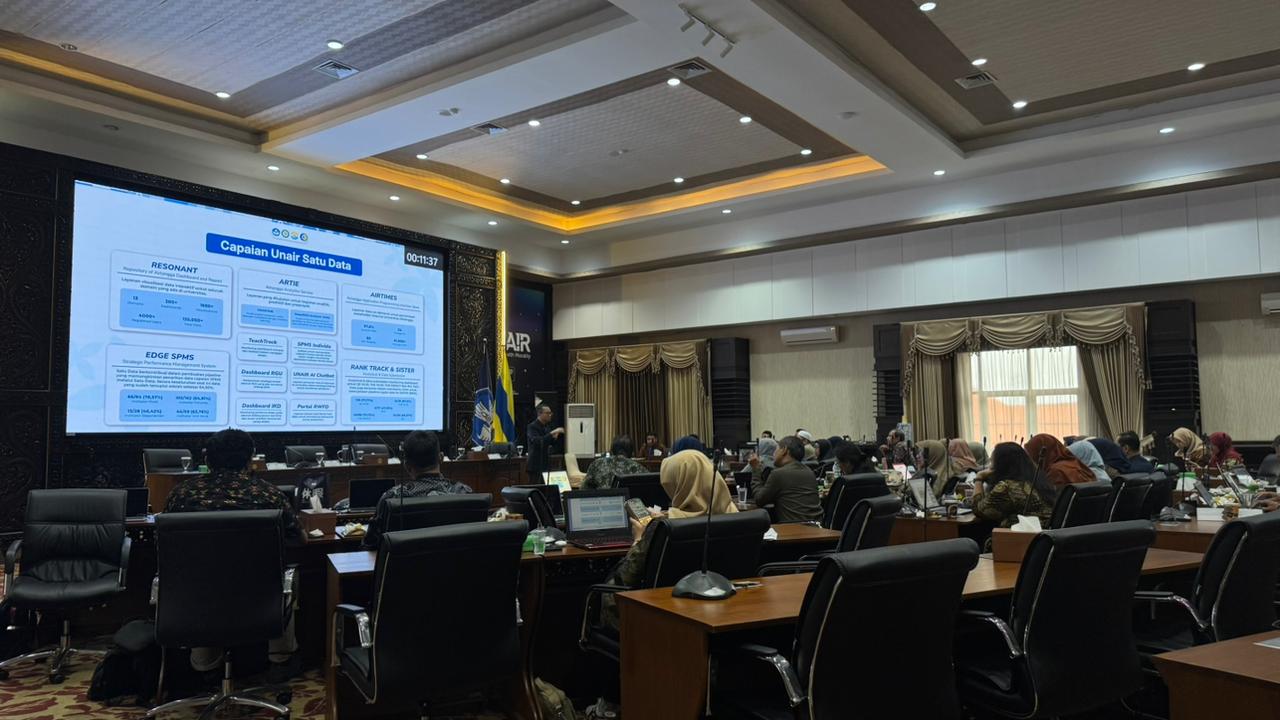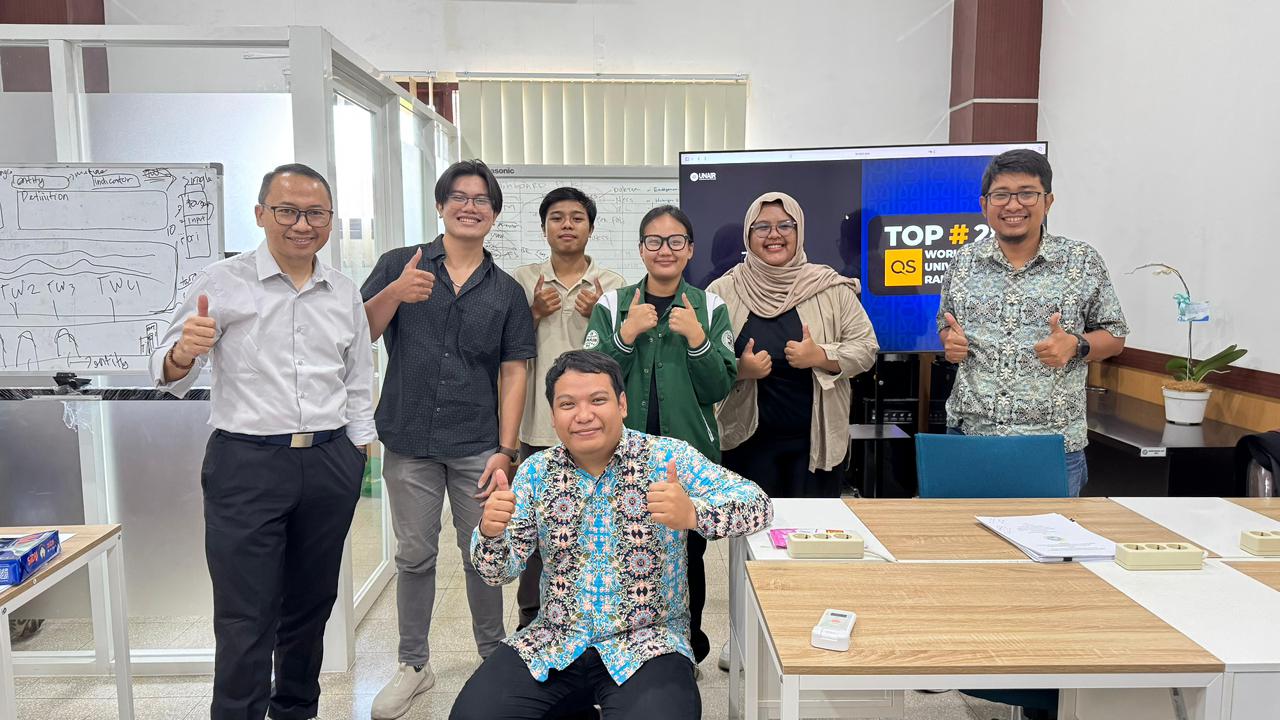On September 21-23, 2024, Universitas Airlangga held a meeting and Focus Group Discussion (FGD) for Department Heads. The main goal of the meeting was to discuss issues faced within the university's departments and provide concrete solutions to resolve them. The event itself was a collaborative platform for department heads to evaluate their operations to enhance overall performance.
Among the invited guests, Satu Data got an opportunity to deliver a presentation related to several products such as the Lecturer’s Intellectual Contribution Portfolio, Department Performance Dashboard, GRADTime, and Deep SDGs Analyzer (DSA) which were successfully made. During the session, Dr. Unggul Heriqbaldi, SE.,M.Si., M.App.Ec. as the chief of Satu Data, explained that the products were designed to support departments in monitoring, evaluating, and improving their performance across various fields such as academic, intellectual contribution, and human resource management.
In this opportunity, Dr. Eriq first off introduced a collaborative product named the Lecturer’s Intellectual Contribution Portfolio, an initiative between Satu Data and various university units such as DSDM, DSID, LPPM, and LIPJPHKI. This portfolio is designed to streamline the process for lecturers to input their BKD (Beban Kerja Dosen) data into the SISTER platform, while also providing valuable data for university ranking, accreditation, and other institutional activities. Second product to be introduced is the Department Performance Dashboard, which is available on Satu Data’s RESONANT platform. The indicated dashboard provides department-specific data, such as human resource profiles and intellectual contributions to assist performance evaluation and strategic decision making.
Besides that, this meeting reintroduced two other products: GRADTime and the Deep SDGs Analyzer (DSA). The GRADTime objective is to predict the likelihood of timely graduation based on students' academic data, while DSA aims to help classify the Sustainable Development Goals (SDGs) strengths of each faculty to support the decision-making in the field of research and publications (Read more: https://bit.ly/GRADTime-DSA).
The Lecturer’s Intellectual Contribution Portfolio combined with the DSA, contributes to the academic development across departments, particularly from the perspective of the Sustainable Development Goals (SDGs). Firstly, one of the key outputs from the stated portfolio is a consolidated repository of publications by academic staff, primarily lecturers. The sources of this consolidated repository are from Scival (Scopus-indexed publications), Clarivate (Web of Science-indexed publications), and SINTA (Garuda-indexed publications). Then the DSA will process these publications, identifying the relevant SDGs based on its titles. This combination produces an SDG strength map for each department at Universitas Airlangga.
By utilizing this data, departments can evaluate their current contributions and focus their academic efforts on specific SDGs, transforming these into departmental core strength. By aligning their research output with the SDGs, each department has a critical role in addressing global challenges while encouraging scientific progress. Thus ensuring Universitas Airlangga to be at the forefront of global challenges.
Universitas Airlangga committed to become a fully data-driven organization, where every decision is informed by accurate and comprehensive data. The innovations presented by Satu Data are expected to contribute significantly to the university's development and help it achieve its long-term goals for academic excellence. Through these innovative tools, Satu Data hopes that Universitas Airlangga can continue its journey toward data-driven decision-making for the benefit of its academic community.






.jpg)

